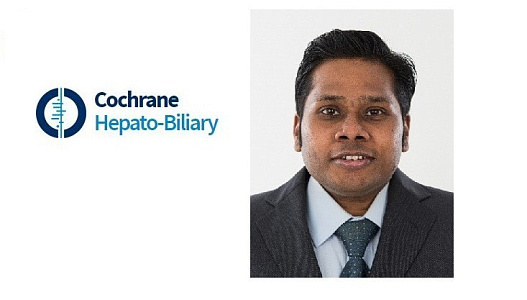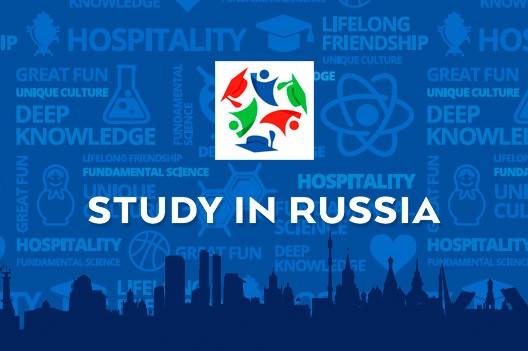- Абитуриенту
-
Обучающемуся
- Я – профессионал
- Локальные нормативные акты
- Образовательные программы
- Стоимость обучения
- Университет - обучающемуся
- Центр карьеры
- Учебный центр по маркировке
- Учеба и наука
- Школы мастерства
- Комфортная среда обучения
- Образовательные стандарты
- Стипендии и материальная поддержка
- Вакантные места
- Общежития
- Сотруднику
- Аккредитация специалистов
-
About University
- Mission & Brand Strategy
- University Leadership
- Rector's Welcome
- History
- Regulatory Documents
- Contacts
- Staff
- International Recruitment
- Partners
Applicants- Why Sechenov University
- Degree Programmes in English
- Preparatory Courses
- Non-Degree Programmes
- Transfer from other Institutions
Events
CalendarEvents in calendar
1- weekend1- holiday1- event presentedEvents of the day:
15.10.2018 16:00 - 15.10.2018 18:00Practical course: «Evidence-based Medicine. Cochrane methodology in conducting systematic reviews and meta-analyses»

SECHENOV UNIVERSITY СENTER FOR EVIDENCE-BASED MEDICINE
Professor Kurinchi Gurusamy
Professor of Evidence-based medicine at University College London (UCL)
Director of Surgical & Interventional Trials Unit at UCL, UK.
PRACTICAL COURSE
«Evidence-based medicine. Cochrane methodology in conducting systematic reviews and meta-analyses»
Details:
First session: 16:00 pm - 18:00 pm, October 15, 2018
On-line webinar (English)
If you decide to join the course after October 15, please follow the direct link to the Universarium course.
Prof Kurinchi Gurusamy
Kurinchi Gurusamy is Professor of evidence-based medicine at University College London (UCL) and Director of Surgical & Interventional Trials Unit, UCL. Prof K Gurusamy has established and leads the Master of Science course in Evidence-based healthcare at UCL. A surgeon by background, Prof K Gurusamy is currently doing research as well as teaching evidence-based medicine and review preparation so that high-quality healthcare is provided to all.
High-quality research in terms of establishing the most accurate diagnostic tests for prognosis, prevention, and hence treatment of people is in high demand. On top of the evidence hierarchy are the systematic reviews of randomised controlled trials which are prepared in order to assess the benefits and harms of interventions. Cochrane systematic reviews are known for their high quality because of the rigorous Cochrane methods used for their preparation. Prof. K Gurusamy has published more than 100 Cochrane systematic reviews as a first or senior author, and he is still working on a great number of reviews. Prof. K Gurusamy is a Deputy Co-ordinating Editor of the Cochrane Hepato-Biliary Group (CHBG). At least 40 of his systematic reviews and cost-effectiveness analyses are used in national and international guidelines which is indicative for his high-quality research. The topics that Prof. K Gurusamy works on are mostly chosen through consultations and surveys with the end users, i.e., the patients. Appendix 1 lists national and international guidelines that make recommendations for clinical practice based on systematic reviews prepared by Prof K Gurusamy. Among the international clinical practice guidelines are guidelines on acute calculous cholecystitis, acute appendicitis, management of common bile duct stones, and gallstones.
In addition to guiding clinicians in clinical practice, systematic reviews also highlight the evidence gap. Prof K Gurusamy addresses gaps by also working on the randomised controlled trial design and trial conductance, as well as translational research.
Prof K Gurusamy has established several partnerships with patient groups in UK. Through priority setting partnerships, Prof. K Gurusamy has identified research gaps in for e.g., non-alcoholic related liver and gallbladder disorders, health-care associated infections. The outcomes assessed in Prof K Gurusamy research are patient-oriented outcomes.
Only a small proportion of pre-clinical research translates into clinical benefit. There are significant differences in the effects of interventions observed in animal experiments and those observed in clinical trials; some of the interventions shown to be beneficial in animals have turned out to be harmful in humans. Prof K Gurusamy is currently involved in a Delphi consensus process to assess the reliability of preclinical research study and whether the results of the preclinical study are likely to translate into human benefit.
Appendix 1
UK guidelines
· National Institute for Health and Care Excellence. NICE guideline: pancreatic cancer in adults: diagnosis and management.
· National Public Health Service for Wales. Public health evidence-based summary Cholecystectomy for asymptomatic gall stones
· British Society of Gastroenterology (BSG) Guidelines for the diagnosis and treatment of cholangiocarcinoma: an update
· British Society of Gastroenterology (BSG) Updated guideline on the management of common bile duct stones (CBDS)
European guidelines
· European Association for The Study of The Liver (EASL) clinical practice guidelines: Management of chronic hepatitis B virus infection
· European Association for The Study of The Liver (EASL) clinical practice guidelines on the prevention, diagnosis and treatment of gallstones
· European Association for The Study of The Liver (EASL)- Asociacion Latinoamericana para el Estudio del Higado (ALEH) Clinical Practice Guidelines: Non-invasive tests for evaluation of liver disease severity and prognosis.
· European Association for The Study of The Liver (EASL) - European Organisation for Research and Treatment of Cancer (EORTC) clinical practice guidelines: management of hepatocellular carcinoma
· Biliary stenting: Indications, choice of stents and results: European Society of Gastrointestinal Endoscopy (ESGE) clinical guideline
· Prevention and treatment of bile duct injuries during laparoscopic cholecystectomy: the clinical practice guidelines of the European Association for Endoscopic Surgery (EAES)
· European Federation of Societies for Ultrasound in Medicine and Biology (EFSUMB) Guidelines and Recommendations on the Clinical Use of Ultrasound Elastography. Part 2: Clinical Applications
· European Federation of Societies for Ultrasound in Medicine and Biology (EFSUMB) guidelines on interventional ultrasound (INVUS), part III–Abdominal treatment procedures
Other international guidelines
· Society of American Gastrointestinal and Endoscopic Surgeons (SAGES) guidelines for the clinical application of laparoscopic biliary tract surgery 2010
· World Federation for Ultrasound in Medicine and Biology (WFUMB) guidelines and recommendations for clinical use of ultrasound elastography: Part 3: liver
· World Society of Emergency Surgery (WSES) consensus conference: Guidelines for first-line management of intra-abdominal infections
· 2016 World Society of Emergency Surgery (WSES) guidelines on acute calculous cholecystitis
· Acute cholecystitis: World Society of Emergency Surgery (WSES) position statement
· Guidelines for Perioperative Care for Pancreaticoduodenectomy: Enhanced Recovery After Surgery (ERAS) Society
Other guidelines
· Guideline on the management of pancreatic adenocarcinoma: update of capita selecta – Part 2 Diagnosis
· Laparoscopic cholecystectomy: consensus conference-based guidelines.
Lecture timetable
Title
Date
Start
End
Lecture 1 Introduction to evidence-based healthcare &
Lecture 2 Introduction to study designs
15 October 2018
16:00:00
18:00:00
Lecture 3 Introduction to errors in health research &
Lecture 4 Hierarchy of evidence
29 October 2018
16:00:00
18:00:00
Lecture 5 Introduction to numerical concepts in health research &
Lecture 6 Representation of data and measures of association
12 November 2018
16:00:00
18:00:00
Lecture 7 Introduction to systematic reviews & Lecture 8 Drafting the research question
26 November 2018
16:00:00
18:00:00
Lecture 9 Surrogate outcomes and composite outcomes &
Lecture 10 Choosing an outcome
03 December 2018
16:00:00
18:00:00
Lecture 11 Selection of studies &
Lecture 12 Data extraction Part 1
14 January 2019
16:00:00
18:00:00
Lecture 13 Data extraction Part 2 &
Lecture 14 Data extraction Part 3
21 January 2019
16:00:00
18:00:00
Lecture 15 Data extraction Part 4 &
Lecture 16 Data extraction Part 5
04 February 2019
16:00:00
18:00:00
Lecture 17 Analysis of data part 1 &
Lecture 18 Analysis of data part 2
18 February 2019
16:00:00
18:00:00
Lecture 19 Analysis of data part 3 &
Lecture 20 Interpretation of forest plots part 1
04 March 2019
16:00:00
18:00:00
Lecture 21 Interpretation of forest plots part 2 &
Lecture 22 Reporting bias
18 March 2019
16:00:00
18:00:00
Lecture 23 Presentation of results part 1 & Lecture 24 Presentation of results part 2
01 April 2019
16:00:00
18:00:00
Lecture 25 Discussion and conclusion
15 April 2019
16:00:00
18:00:00
Assessment 1
19 November 2018
16:00:00
17:00:00
Assessment 2
11 February 2019
16:00:00
17:00:00
Assessment 3
22 April 2019
16:00:00
17:00:00



